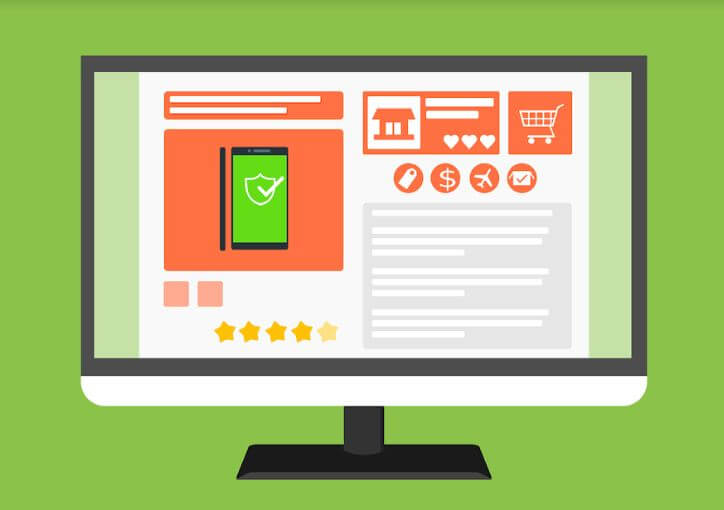Healthcare education is a vast, critical field. To become a qualified practitioner and offer the best possible care to those who need it most, you’ll need plenty of experience in real-world clinical settings.
Clinical placement is a crucial part of your education. It’s an opportunity to gain knowledge and experience in the healthcare industry. Clinical placement is helpful because it allows you to understand what it is like to work in the hospital and provides valuable insight into your job if you join after graduating.
This post explores what it means to gain skills through clinical placement in healthcare and why it’s so important for future physicians and medical professionals.
What is clinical experience in healthcare?
Clinical placement is a program in which a student or graduate intern of a healthcare-, medical- or social service-related program works for a designated time in the actual field. The clinical placement provides students the opportunity to gain first-hand experience and knowledge about the field of their future profession.
While clinical placement is a small part of your education, it is imperative because it allows you to get real-world insight into what being a healthcare professional entails. By completing a clinical placement, you can get experience working in an actual healthcare setting and gain the skills necessary to transition into the medical field.
Why is clinical placement in healthcare education important?
The clinical placement allows students to learn hands-on skills, which will benefit the workplace. Here are six reasons why:
Real-world experience
One of the most challenging things about transitioning from academia to the real world is learning how your job works. Your time in a clinical environment will allow you to learn about healthcare and gain the skills necessary for your future profession.
The best way to gain experience is to put your knowledge into the field and use this skill set to provide the best possible care. To do this, you’ll need hands-on experience in clinical placement.
A clinical placement allows you to work alongside qualified professionals. These professionals have the skills and experience necessary to handle common problems in the hospital. They can provide valuable tips and tricks that will allow you to improve your skills and performance.
These tips will be constructive when you transition into the medical field and begin your career. In this way, you’ll gain a deeper understanding of what your job will entail in the long run.
Exposure to a variety of practice areas
One of the biggest mistakes you can make as a healthcare student or professional is believing that one area of medicine is more important than another. The truth is that all areas of treatment are equally important.
For example, without general practitioners, patients would have no one to turn to when they need healthcare. Each part works together to help patients recover and live a healthy lifestyle in the future.
For this reason, clinical placement in healthcare is an excellent way for you to gain knowledge in all areas of medicine. You’ll get to see all the different aspects of healthcare and learn each one’s importance.
This approach will allow you to understand each function and provide the best care possible.
Growing your soft skills
Most of us know that communication is an integral part of our job. But often, we need to perform better regarding patient care and interpersonal relationships. A clinical placement can help you improve your skills in this area.
By gaining experience working in a healthcare setting and interacting with patients, you can learn how to deal with mental health cases and listen and interact with individuals. It will prove very beneficial when you begin your career because patients can trust and believe in your advice.
Here are some of the soft skills you’ll learn in clinical placement:
Patient communication: Communication is an integral part of the doctor-patient relationship. Communicating effectively with patients will help you form successful relationships that encourage participation in treatment plans.
Listening is one of the most important aspects of being a healthcare professional. Improving your listening skills will help you receive the best care possible for patients and provide them with a great experience.
Your writing and speaking skills will also improve through your clinical placement in healthcare. By gaining clinical experience during a clinical placement, you can learn the best way to communicate with patients and gain their trust.
Dependability: Being a healthcare professional often requires you to work long hours and deal with complex cases daily. This continuous presence can become very difficult when you have to be on call.
The best way to deal with this is by being an efficient worker who maintains good relationships with staff and patients. By gaining clinical experience in a healthcare setting, you’ll be able to understand how your caseload impacts your job and develop an effective strategy for coping when things get busy.
Adaptability: When you’re a healthcare professional, you must be ready to face any situation. Your role in the hospital is essential. Patients need to know they can trust you, which means your behavior is under constant supervision.
A clinical placement allows you to adapt to a new environment and make adjustments as necessary. You’ll learn how a healthcare setting operates and how to work effectively in an unfamiliar place.
Time management: Being a healthcare professional requires working long hours and dealing with cases daily. It can be difficult when you have a large caseload, limited resources, and little time to yourself.
However, clinical placement will allow you to learn how to manage your time effectively and keep your job organized. By gaining insight into what it’s like in a hospital setting, you’ll develop strategies that will help you manage your day and provide effective plans for taking care of patients.
Problem-solving: Your job as a healthcare professional will require you to solve problems. Clinical placement will give you experience identifying issues within a healthcare setting.
By gaining this insight, you’ll learn how to solve problems effectively and organize your recommendations for fixing these issues.
Future-proof networking
While clinical placement is a small part of your education, it can provide access to important people in the field. The connections you make during clinical placement will positively impact your future.
Established healthcare professionals will mentor you in your career and provide insight into your future. Your connections to more experienced professionals can also provide you with great advice. They can help you make the best decisions regarding finding your next job and choosing the most appropriate training program.
Using this information, you can improve your approach to patient care and identify the best educational path for your future. You’ll be able to develop a clear direction for your healthcare career.
The ongoing interaction is an excellent way to build relationships and form lasting professional relationships that will help you throughout your career.
Getting to know interesting patients
Healthcare professionals are the caretakers of sick individuals, which often means being in close contact with people who are ill and need your help. You’ll interact with fascinating individuals and learn how people outside your industry think and react when they need care.
A DNP to FNP course allows you to develop advanced clinical and leadership skills. By exploring this course, you’ll learn how to work and focus on the needs of unique populations and cultures.
The patients and families become a benchmark of your educational experience, allowing you to learn more about each unique case. Exposing yourself to this learning type will help you understand the reasoning behind patient care and work efficiently with those who require your medical services.
This new perspective will allow you to establish valuable relationships and learn much from the patients. You’ll gain practical knowledge that you can use in your career.
Modeling sound professional and ethical behavior
Healthcare professionals are under constant scrutiny and public judgment. Ensuring ethical behavior is the best way to overcome scandals and ensure that your patients receive the best possible care.
A clinical placement can help you learn how to deal with situations ethically by working with senior healthcare professionals in various positions. You’ll also get to work with patients who need your help, providing you with a new perspective on healthcare.
Through this experience, you’ll learn how to interact ethically and responsibly with other healthcare professionals and trainees. You’ll also learn how to work with ethical concerns if they arise.
Your clinical placement in healthcare is an excellent opportunity to learn about professional ethics and valuable lessons for your career. The knowledge you gain can help you distinguish between professional and unethical behavior, allowing you to make the best decisions regarding patient care.
Sharpen your real-world skills with clinical placement
A clinical placement will help you develop the skills necessary to be an excellent healthcare professional. With this background, you’ll work with doctors, nurses and other healthcare professionals in various settings.
The best way to obtain clinical experience is to find a facility that offers a clinical placement program. It allows you to gain specialized expertise that will benefit you for the long term and prepare you for the future of your career.








